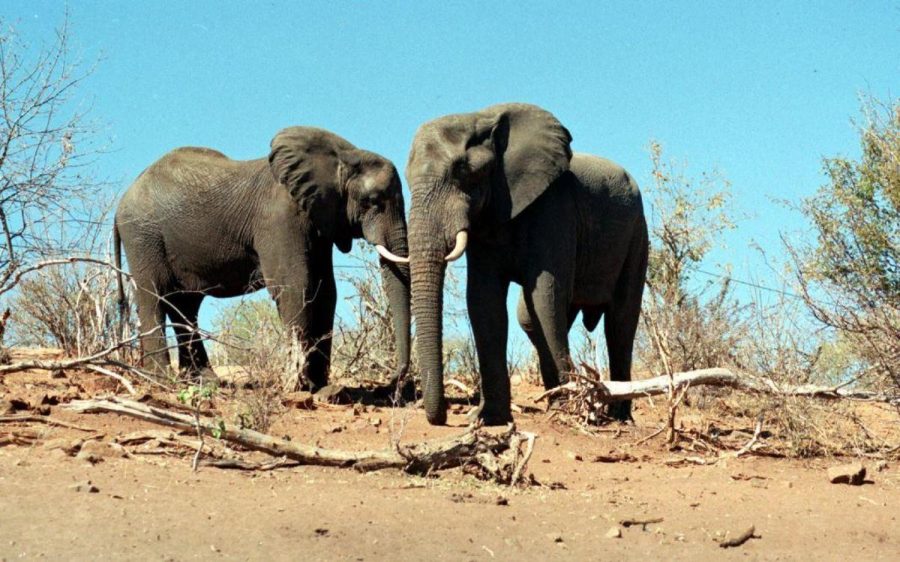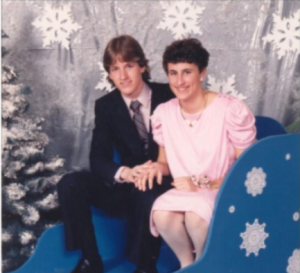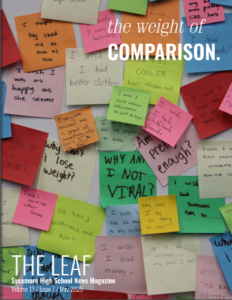Dumbo to the rescue
Elephant genes may hold key for fight against cancer
Elephants have long since remained a walking conundrum for scientists. They are large in size, so cancer should be more prevalent. However, this is not so; in fact, elephants rarely receive cancer.
November 18, 2015
Why do elephants rarely get cancer? The mystery has stumped scientists for decades.
Because they have nearly 100 times as many cells as people, they should be 100 times more likely to have a cell turn cancerous over their 50 to 70 year long lifespan.
However, according to USA Today, less than five percent of elephants die from cancer, compared to the cancer mortality rate of 11 to 25 percent in people.
A recent study’s findings, published in the Journal of the American Medical Association (JAMA), suggest a possible explanation for this conundrum. Elephants were found to have 20 copies (40 alleles) of a gene that encodes p53, a tumor-suppressor.
Humans only have one (two alleles).
Anatomy and physiology teacher Ms. Danielle Scrase said, “P53, or TP53 in humans, stops the formation of tumors. It stops the spread of mutated cells that could cause cancer.”
The study was carried out by a team of researchers at the Huntsman Cancer Institute (HCI) at the University of Utah and Arizona State University (ASU), in collaboration with the Ringling Bros. Center for Elephant Conservation, and Utah’s Hogle Zoo.
The team was led by co-author Joshua D. Schiffman, M.D., pediatric oncologist at HCI and the University of Utah School of Medicine.
To see if the extra copies of p53 protected against cancer, the researchers extracted white blood cells from the blood drawn from Asian and African elephants during a wellness checks and damaged the DNA to trigger cancer.
In response, the cells underwent p53-facilitate apoptosis, or cellular suicide.
Schiffman said in a press release, “It’s as if the elephants said, ‘It’s so important that we don’t get cancer, we’re going to kill this cell and start over fresh.”
“If you kill the damaged cell, it’s gone and can’t turn into cancer. This may be more effective [… for] cancer prevention than trying to stop a mutated cell from dividing and not being able to completely repair itself.”
Patients with the Li-Fraumeni Syndrome are the complete opposite of elephants. They have only one functional copy of the p53 gene and more than a 90 percent lifetime risk for cancer.
Comparing the elephant cells to those of healthy humans and patients with Li-Fraumeni Syndrome, Schiffman’s team found that they self-destructed at twice the rate of healthy human cells and five times that of Li-Fraumeni cells when exposed to radiation.
The results support the idea that extra p53 offers enhanced resistance to cancer.
Freshman Carolyn Gao said, “The question is: where can this go next? What can scientists do with this information to help with cancer prevention and treatment in humans?”
The elephant is only one example of how evolution may have triumphed over cancer.
Other data suggests that bowfin whales, which are larger than elephants and live for more than 200 years, and subterranean, naked mole rats have independently evolved other anticancer functions, as reported in the Oct. 8 JAMA editorial.
Craig Dinsmore, executive director for the Hogle Zoo, said, “The animal kingdom undoubtedly holds information that could help lead to cures for many human illnesses.”
Schiffman plans to use the study’s findings as a strategy for developing cancer-fighting therapies and prevention methods.
The possibilities are endless.
Sophomore Melinda Looney-Ho said, “I think that this is a huge step forward in the fight against cancer. Hopefully, later on in our lifetimes, there will be a definitive cure for even the cancers that we can’t treat right now.”







